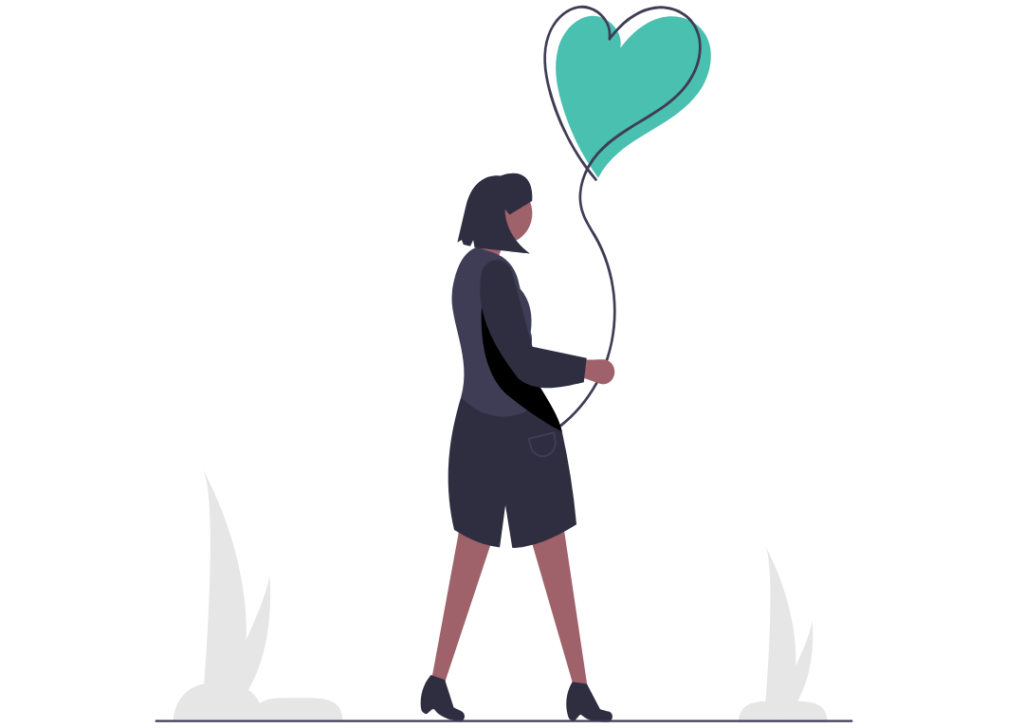
How Caregiving Taught Me to Endure
Just two months after Patrick began volunteering at a hospice, he became a full-time caregiver for his partner’s dad.

As the oldest child in her family, Staci always knew she would become her father’s primary caregiver. What she wasn’t prepared for, though, was how their relationship would change. Staci shares the challenges of caring for someone who felt ashamed of their condition, how she dealt with her frustrations, and lessons learned navigating the healthcare system. This is Staci’s story.
As told to Open Caregiving and lightly edited to enhance readability while preserving the author’s voice.
Hi, my name is Staci. I’m a Millennial woman from Virginia. I am no longer a caregiver as my father passed in mid-December last year.
I started as a caregiver for my father by mostly advocating for him with the Veterans Affairs (VA) hospitals and getting him on Social Security. He was only getting 20% disability from the VA, but he had back surgery and would regularly throw his back out.
My father suffered from COPD (chronic obstructive pulmonary disease) and a poorly trained and under-qualified employee caused him to lose his oxygen. After that, I moved him to the civilian sector and got him on disability and Medicare.
At the time I was a college student wrapping up my bachelor’s degree and living with my then boyfriend. My father moved from Michigan to Virginia and I didn’t have a place for him to stay, so he moved in with my estranged brother-in-law. They got along great.
Later on, my father moved in with us. I was in the workforce and married with no children. He could still be out and about by himself, but cooking, cleaning, and laundry were hard for him. I also managed his appointments, bills, and medications. He would sometimes ignore that something was wrong if I didn’t force him to the doctors.
I was not working in the field I studied and was just working for the highest pay. We needed to purchase a single-story house that had a room that would work for my father. We estimated his deterioration would require a home with no stairs and easy access to a large bathroom.
I always knew I would end up as his caregiver because I was his oldest child and he was the last of his siblings. None of his siblings had lived beyond 65 years of age, so by the time he was 58 I knew what was ahead. My dad and I have always been close, but we didn’t have a traditional parent/child relationship. I’ve always felt more like a caregiver or sister. I think this kind of colored the caregiver relationship.
Finding answers is hard. It seems like no one is really out to help you navigate any of this. Doctors are not out to help you. You must advocate for your family member, and it is hard. You have to work for it.
People won’t call you back or follow-up. Be the irritating person until you get what you need. Make phone calls and Google search until you’re tired of talking to people. Learn the insurance eligibility requirements and understand insurance well.
Caregiving changes your relationship dynamics. My relationship with my father changed the more I needed to nag him to take his meds, eat this, ask if he wanted a shower/bath/sponge bath, or help him in any way. The most frustrating thing for me was breaking through his pride. He knew that he needed the help, and he knew that I was willing to help. His pride got in the way.
I did not expect this given how close we had always been. I had medical and nurse aide training, and the family had a history in the hospice/caregiving field.
The worse he became, the more his pride interfered. He felt better when he’d let me bathe him and change his sheets, but he always fought me on it because he was ashamed of his condition. I couldn’t get through to him that he was not lesser for needing help.
This was the part I always struggled with the most. You have to take care of yourself, or you cannot take care of others. You cannot fill someone else’s glass if yours is also empty. We would sometimes get pedicures together. Sometimes I would take myself out to lunch with a book. Sometimes I would find an excuse to go shopping.
Medicare, Social Security, Medicaid, Department of Health and Human Services, and Charities. These will be the first things you should focus on. Each one will lead to other resources.
Second, make a binder with doctors’ contact information, insurance cards, relevant diagnoses, and relevant medical records. Take it with you to appointments.
Don’t let yourself get so stressed out about taking care of them that you forget your relationship before the disease. As my father deteriorated and became less himself I had a hard time remembering our relationship without the frustration of trying to take care of someone who did not want to be taken care of. Being a caretaker is HARD and so much more so without a good support structure. Make sure you have one in place.
You will get frustrated, angry, and resentful. And that’s okay. You are allowed to FEEL. But so are they. And they feel ashamed, embarrassed, and resentful. They don’t want to NEED the help. Feel your feelings, but try to do so without showing it to them or taking it out on them.
You’re both in this situation together. Don’t be afraid to ask for help. You may also be able to get respite care. Someone can come in, sit with your family member, and take care of some light chores while you go do whatever for a few hours.

Just two months after Patrick began volunteering at a hospice, he became a full-time caregiver for his partner’s dad.

Klara was a few years out of college when her seemingly healthy mom was diagnosed with a rare form of cancer beyond treatment.

As a child, Jill became her mother's primary caregiver after a stroke paralyzed her. She later cared for her father and older sister.